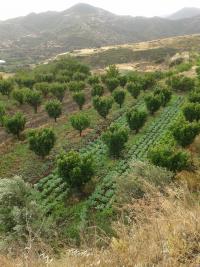
Organic farming versus conventional farming: 1:0. This is the result scored by the organic farming model, which proves to be more effective and resilient in the event of extreme climatic events, showing results in terms of production that are superior to those of conventional agriculture.
The Farming System Trial research project conducted since 1982 by the Rodale Institute in Kutztown, Pennsylvania, came to this conclusion, which has already been highlighted by other studies. The study compared the results in terms of productivity in maize and soya cultivation achieved by three farming systems: a conventional one with chemical inputs, an organic one based on the rotation of leguminous crops for nutrient supply, and another, again organic, that uses manure as fertiliser. It emerged that, under extreme weather conditions such as drought, organic plots had a very limited drop in productivity, while in conventional ones, yields fell substantially. In particular, organic maize in drought years yielded 31% more than conventional production.
This is an extremely interesting result considering that farmers around the world are increasingly having to deal with the devastating effects of droughts and floods. Just a few days ago, the Italian Farmers’ Union Coldiretti released an estimate of the damage suffered by Italian farmers due to the 310 extreme weather events that occurred in 2022. The loss suffered by Italian agricultural production amounted to EUR 6 billion, equivalent to 10 per cent of national production,
The improved performance of organic agriculture in the face of weather events is related to the greater stability of the soil to retain water, representing a form of protection in the event of droughts and floods. "Regenerative organic farming builds healthy soil through increased organic carbon," said Reza Afshar, chief scientist at the Rodale Institute. "This allows the soil to absorb more precipitation during periods of flooding and retain moisture for longer periods during periods of drought."
Source: Cambia la Terra



